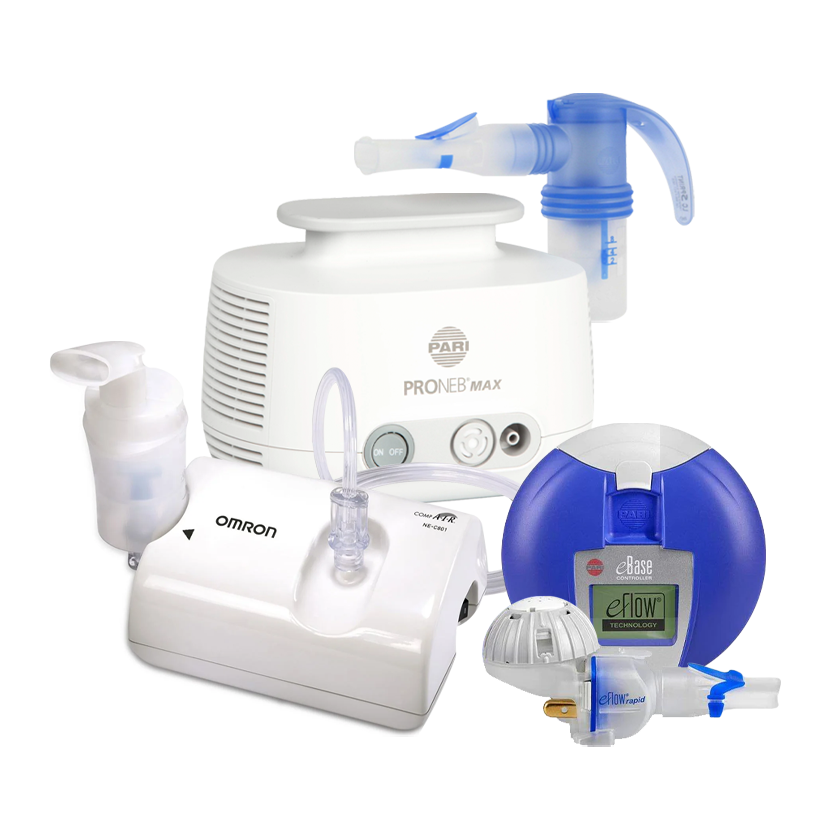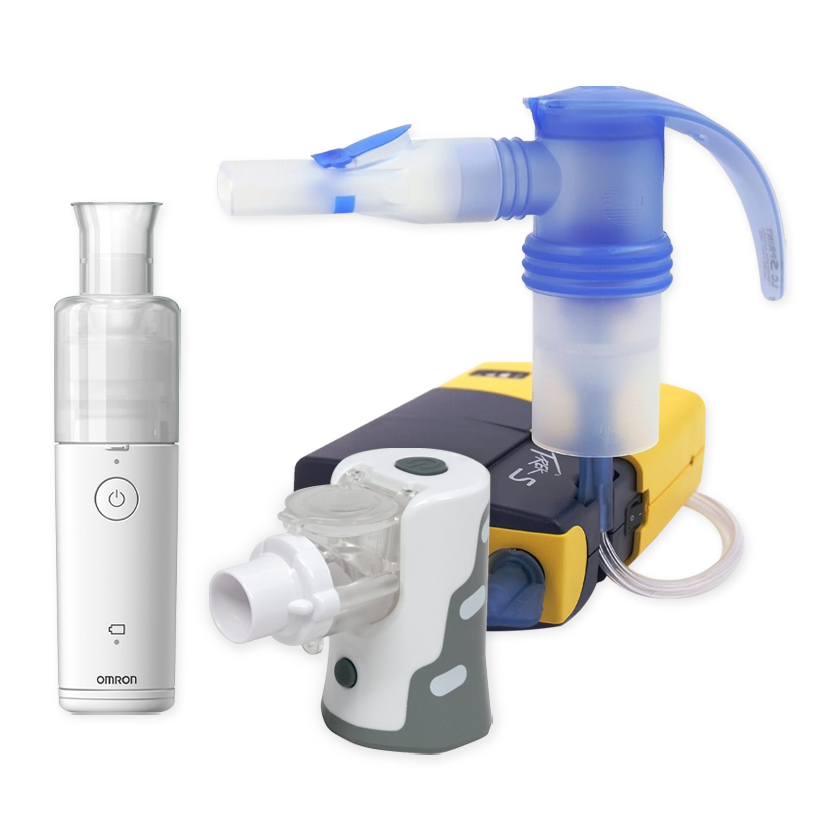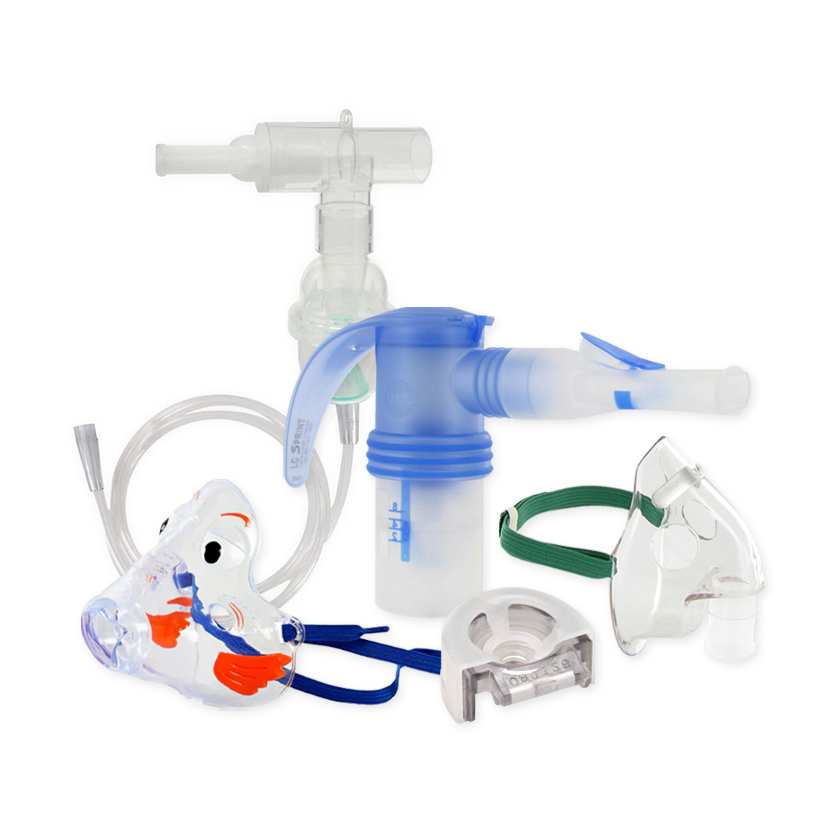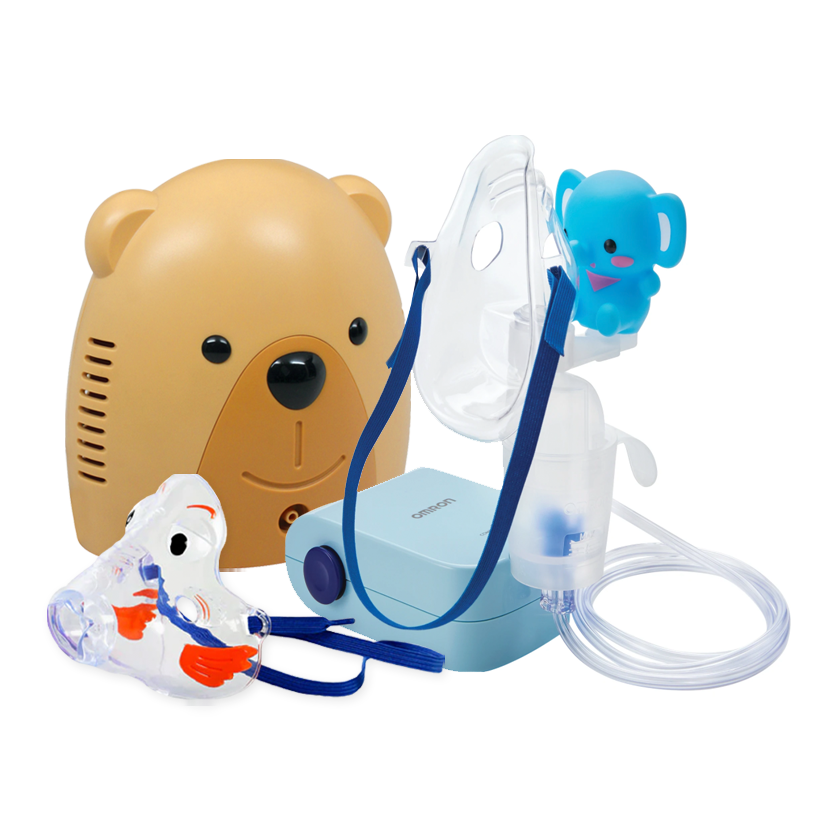Your Cart is Empty
Free Shipping on all orders over $75!
Menu

Free Shipping on all orders over $75!
Nebulizer Systems
Travel Nebulizers
Nebulizer Accessories
Just For Kids
Oxygen Supplies
Canine Asthma Treatment
April 11, 2014 4 min read
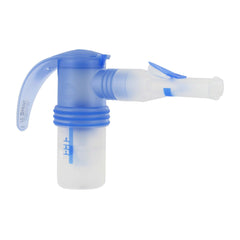 The Centers for Disease Control and Prevention estimates that 1 in 12 Americans have asthma. If you know someone with the condition (or if you yourself are asthmatic), then you know how scary it can be: the coughing, the wheezing, the tightness in the chest. Just like humans, dogs can develop asthma. The bad news? Canine asthma can permanently damage the lungs, and may occasionally prove fatal if not managed properly. The good news? The disease is nowhere near as prevalent in canines as it is in humans. To help you better understand (and more importantly, prevent and treat) canine asthma, here are the answers to some common questions.
The Centers for Disease Control and Prevention estimates that 1 in 12 Americans have asthma. If you know someone with the condition (or if you yourself are asthmatic), then you know how scary it can be: the coughing, the wheezing, the tightness in the chest. Just like humans, dogs can develop asthma. The bad news? Canine asthma can permanently damage the lungs, and may occasionally prove fatal if not managed properly. The good news? The disease is nowhere near as prevalent in canines as it is in humans. To help you better understand (and more importantly, prevent and treat) canine asthma, here are the answers to some common questions.
What is canine asthma?
Asthma is a disease characterized by chronic inflammation of the air passages in the lungs. The nerve endings in an asthmatic dog’s lung tissue become irritated easily, causing the passages to narrow and limit the airflow in and out of the lungs. During an asthma attack, the muscles around the airways constrict to the point where the dog has immense difficulty breathing, coupled with coughing and wheezing.
What causes canine asthma?
Just like in humans, a dog’s asthma is triggered by exposure to allergens and irritants. Cigarette smoke, dust, dry air, and pollen may all spark symptoms; additionally, extreme physical exertion, such as exercise or extended barking episodes, can also cause a dog to cough and wheeze. Your dog won’t be able to pinpoint the exact cause of his or her asthma, but you can form inferences by taking note of the surrounding environment during an asthma attack (after helping Fido first, of course). For example, was someone smoking? Were carpet cleaners or other household cleaning products used? What was the air quality index that day? Write down what you observe, and share this information with your vet.
What are the signs of canine asthma?
Dogs aren’t blessed with the gift of spoken communication (yet), so they can’t tell us when they’re beginning to experience symptoms. Luckily, through careful observation, owners may identify the warning signs of canine asthma. If your dog exhibits any of the following signs or symptoms, contact your veterinarian immediately.
- Respiratory distress (labored breathing, wheezing, shortness of breath)
- Heavy, open-mouth breathing
- Pale or blue-tinged gums (due to oxygen deprivation)
- Lethargy
- Lack of appetite
- A dry, raspy cough
- Unexplained weight loss
How is canine asthma diagnosed?
Before you meet with your veterinarian, it’s absolutely vital to document any symptoms your dog may be experiencing. If your dog is coughing or wheezing, write down what it sounded like. And take note of the frequency of the symptoms, how long they lasted, and any potential triggers you suspect may be related to the attack.
Your veterinarian will consider these observed signs as he or she performs a physical examination. In addition to using a stethoscope to listen to your buddy’s breathing, he or she may take chest x-rays, bronchoscopy (a procedure in which airway tissue samples are extracted and examined under a microscope), heartworm and fecal tests (to rule out parasites), or blood/urine samples. You might wonder why all these tests are being performed; because a dog’s coughing can be caused by any one of a number of other conditions, it’s important to make sure there isn’t a greater systemic issue that’s to blame.
How is canine asthma treated?
If it turns out that Spot does have asthma, don’t fret! There’s a whole array of treatment options available for managing the condition. Here are some of the solutions a veterinarian may prescribe:
- Antihistamines – If your dog’s asthma is triggered by allergies, your vet may recommend the use of antihistamines – medications that make your dog less likely to react to allergens.
- Steroids – Steroids may be used to treat airway inflammation, making your dog less prone to asthma attacks. Over time, many owners report a significant reduction in the frequency and severity of their pets’ symptoms.
- Bronchodilators – Bronchodilators are medications that relax the lung and chest muscles, allowing more air to reach the deeper portions of the lungs. In order to administer these medications, your vet may prescribe the use of an inhaler, or a nebulizer (a machine that converts the liquid medication into a mist that your dog inhales).
- Injections – In extreme cases (such as during a severe asthma attack), your dog may need an epinephrine injection to immediately reduce swelling in the lungs. Don’t worry – your vet will ensure that you learn the proper method for administering this treatment.
- Oxygen therapy – Asthma attacks cause a dog’s lungs to become deprived of oxygen; as an attack continues, the dog may become nervous, which only constricts the airways more. Oxygen treatment instantly supplies your best friend with a rich supply of this vital element, helping to ensure their safety.
What’s the prognosis for asthmatic dogs?
Thanks to the abundance of treatment options available, most asthmatic dogs can live normal, happy lives, provided that their owners carefully follow their veterinarians’ management plans. Additionally, by taking steps to reduce asthma triggers – such as not smoking and dusting regularly – the frequency of asthma symptoms can be reduced even more.
There may be no cure for canine asthma, but there are plenty of ways to make sure that the condition doesn’t interfere with a dog’s rights to life, liberty and the pursuit of squirrels. Stay vigilant, be on the lookout for the warning signs outlined above, and notify your vet if you have any questions or concerns.
Subscribe
Sign up to get the latest on sales, new releases and more …
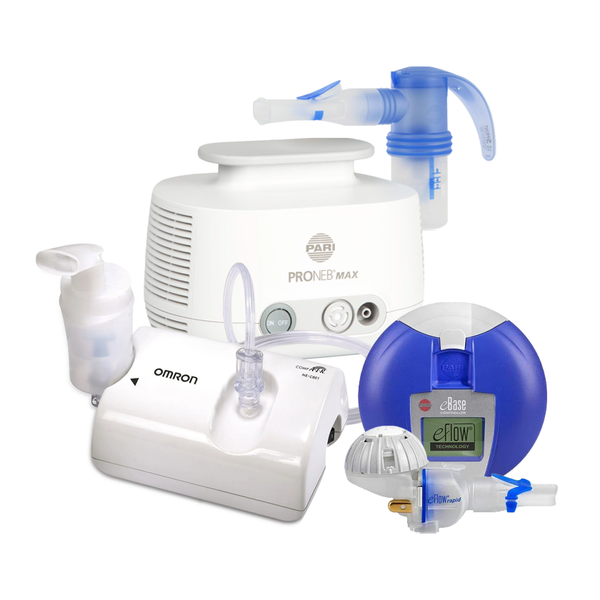
NEW CUSTOMERS SAVE $5 OFF YOUR FIRST PURCHASE OF $20 OR MORE
Code will be sent to email entered if applicable
SIGN UP FOR FUTURE SALES, NEW PRODUCTS AND ANNOUNCEMENTS
{"themeColor":"#061f77","iconColor":"#061f77","showLogo":true,"topBottomPosition":0,"rightLeftPosition":5,"iconSize":"large","iconCustomSize":64,"position":"middle-right"}
